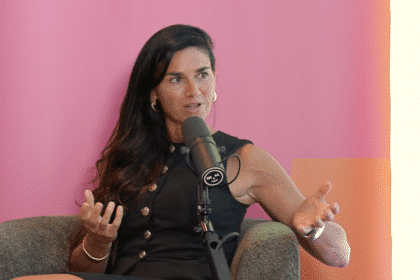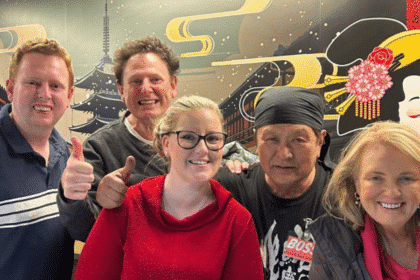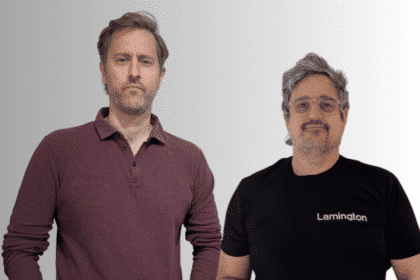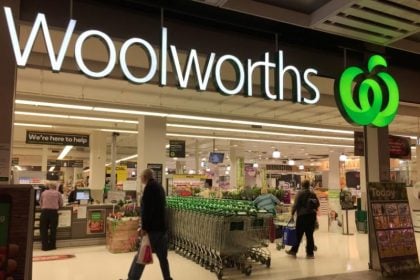It’s no secret, consumers now expect a frictionless experience. VMLY&R head of experience Kirsty Robinson explains how the values economy is changing customer expectations.
The phrase “Experience Economy” was first coined in an article written back in 1998.
In the two decades since, customer experience has grown from just a capability within an organisation, to a fundamental capability of the organisation itself, often used to drive its business strategy.
There’s plenty of data to show that the experience a customer has while transacting with a brand not only builds loyalty but also has the ability to drive that customer (and their friends) away. The 2019 SAI Global Consumer Trust Index revealed two key reasons why customers leave brands:
- first-hand poor customer experience (85 per cent); and
- poor word of mouth reports from family or friends (81 per cent).
These statistics are not surprising; we all know this, and as a result designing frictionless and memorable experiences and interactions has become a key focus of brands around the world.
But the truth is that customer expectations of brands is changing. So too the expectations that employees have of their employers. Consumers and employees alike expect brands to do and be more. Investors such as BlackRock are also beginning to apply pressure to brands to prioritise more than just profit, and become active social citizens within the communities they impact.
Who brands are, what brands stand for, where brands source their products from, how brands treat their suppliers and employees and how brands take responsibility for customer data and privacy are all becoming more important.
We’ve seen brands beginning to respond to this emerging values-driven customer by leaning into brand purpose and creating purpose-driven ads; but this trifecta of pressure coming from customers, employees and investors points to a bigger shift; one that will see the winners taking the best talent, the best investment money and gain the most loyal customer base; and the losers being left behind and seen as tone-deaf to the changing values of society at large. This shift feels bigger than a marketing trend, and more like an entire economic shift.
So, after 20 years of the Experience Economy and at the beginning of a new decade, are we beginning to see the waves of a new values-driven economy? Are we seeing the emergence of the Values Economy where consumers, employees and investors will step in to reward those brands who play capitalism fairly across the board, and punish those who play capitalism as a ‘win at all costs’ game?
The trifecta pincer movement
The growing movement towards a values-driven customer, citizen and society can be felt all around us. Its not just customers, it is broader than that – just look at earlier this year when thousands of Google employees across the world walked off the job in protest at the internet giant’s lenient treatment of executives accused of sexual misconduct; a protest organised by employees in Google Australia.
Or the countless US corporations that severed ties with the National Rifle Association (NRA) as pressure from customers, rallied by the Parklands Survivors, condemned the organization and demanded a boycott in the aftermath of a school shooting at Marjory Stoneman Douglas High School in Parkland, Florida in February this year. On another level, investors globally are also joining the call to action, with BlackRock’s Larry Fink stating in 2019 that business will need to contribute to society if they want to receive their support.
Customers are applying pressure through their hard-earned money
These days, the two youngest generations spend their hard-earned cash in a way that’s different to the previous generations. While it’s true that all consumers get frustrated with poor customer service or underperforming products, Millennials and Gen Z don’t just stop there. These generations will start and stop a relationship with brands for personal reasons which often correlate to a company’s positive or negative impact on society.
According to the Deloitte Millennial Survey, 42 per cent of Millennials said they have started or deepened a brand relationship because they believe the company’s product or services have a positive impact on society or the environment. Further, 32 per cent have stopped or reduced a business relationship because of a company’s questionable ethics.
Let’s be clear though -this is not a generational thing. It’s not just young people with ideals who are driving this trend. This is customer-wide. In SAI’s 2019 Consumer Trust report, five out of the top 10 reasons for leaving a brand were related to ethical concerns. Check out these stats about why consumers leave brands:
- First-hand poor customer experience (85 per cent)
- Privacy breach (83 per cent)
- Unethical business practices (83)
- Known for treating employees poorly (83 per cent)
- Breached government regulations (82 per cent)
- Poor environmental record (82 per cent)
- Incident at one outlet of a fast food chain (impact on specific outlet only) (82 per cent)
- Poor word of mouth reports from family or friend (81 per cent)
- Incident at one outlet of a fast food chain (impact on all outlets) (78 per cent)
- Product recall (77 per cent)
Interestingly, data security, data privacy and data ethics are rapidly becoming a rising concern for customers, with a rise from the 2018 report.
Public concern about data is no longer just about accessing their personal or banking data. The Cambridge Analytica scandal, which influenced Brexit and the US elections, is ringing in their ears and their attention has now shifted to what businesses and political parties are doing with that data to drive sentiment, behaviours and attitudes to their own benefit.
Employees are applying pressure by where they choose to work
A 2018 LinkedIn: Workplace Culture Survey, noted that 86 per cent or nearly nine out of 10 Millennials would consider taking a pay cut to work with a brand whose mission and values aligned with their own.
We are increasingly seeing the workforce finding their voice. About one year ago, Google employees wrote an open letter calling for the company to cancel Project Dragonfly, which was an effort to create a censored search engine in China. They have also protested Google’s deals with oil and gas companies.
Since the Cambridge Analytica scandal, Facebook has found it harder to recruit leading talent; a decline in job offer acceptances with software engineers fell from 90% in late 2016 to 50% in 2019, with candidates reportedly asking a lot tougher questions about privacy policies and approaches.
Investors are applying pressure by where they invest their cash
Whilst ethical investing is not a new thing, it’s certainly beginning to gain traction. According to the latest Annual Impact Investment survey by ethical bank Triodos, 45 per cent of investors say they would move their money if they discovered it was invested in fossil fuels, with a widening body of evidence that consumers and institutions are divesting from so-called sin stocks or funds – those investing in areas such as arms, alcohol, tobacco or fossil fuels.
Britons put £234m into ethical funds in June 2019, according to the Investment Association, whilst a GIIN research report had the global number at $502bn (£390bn) by the end of 2018. There is also mounting evidence that returns on sustainable investments often match or better those from sin funds, so if that’s the case, maybe there is true fiscal value in putting purpose over profit.
And companies are taking notice. In August this year, one of the preeminent business lobbies in the US, the Business Roundtable issued an open letter titled “Statement on the Purpose of a Corporation.” Between the title and the 181 CEO signatures (including the CEOs of Apple and Walmart) was a one-page declaration that ended with: “Each of our stakeholders is essential. We commit to deliver value to all of them, for the future success of our companies, our communities and our country.”
The takeaway?
While all of these trends might not mean much on their own, together they actually represent a public rebuke of the idea that business is business and the sole focus of a CEO is to maximize the profits of that business. The new statement by the Business Roundtable explicitly counters this view and instead asserts the idea that purpose and profit need to be inextricably linked.
What we are seeing here is the trifecta of customers, employees and investors all lining up to push businesses into a more socially aware, and community minded form of capitalism. We’re seeing the critical mass of a new economy coming together; one where people will earn, spend and invest their money only with those businesses which are truly committed to orchestrating their business around sustainable and ethical practices. This is not just about brand purpose as a marketing strategy; but about reengineering business and capitalism to work for the many, and not just the few.
A movement known as the Conscious Capitalism movement, co-founded by John Mackey, CEO of Whole Foods Market and Raj Sisodia, Ph.D. aims to define the new business model needed for this fair and just version of capitalism. The companies who get it right will not only gain and keep customers, but also attract the best talent and the smart investor money.
While perhaps it’s too early to say we have moved to a Values Economy, the tell-tale signs are there. But what is it? What will it mean to brands? In short, the Values Economy is about redefining the priorities and the degree of importance we put on the actions of brands from data values to social values, business values and leadership values.
It’s about recognising that simply selling customers something in a memorable and frictionless way is no longer good enough. Consumers are rebelling against how business works today and will reward the brands that find a better, more ethical and sustainable way of doing business.
Consumers are also expecting brands to take more responsibility over the unintended and unforeseen consequences of their success: AirBnB has opened up the world’s neighbourhood to customers, but in some newly created hotspots entire neighbourhoods of locals are moving out to take advantage, changing the very fabric of the community. Or how we are seeing increasing pressure on the tech giants to take responsibility over their impact on culture, mental health and political interference. So even those brands who have created the ultimate experience are coming under pressure to take responsibility for their success.
It won’t be an easy or fast transition for those brands who are brave enough to take the leap, but the data also shows consumers will reward those who are trying and genuinely making the effort to get it right.
So, are we seeing the rise of the Values Economy? Arguably yes, and it will likely create the guardrails we need to ride us through the next 20 years of exponential change. This next era will potentially separate those brands who are merely greenwashing to try and capitalise on customer values, and those organisations who are looking to authentically their align their supply and deliver chain, their culture and the decision making to their values. Ultimately, it will be these brands who will emotional connect with their customers, employees and investors and grow market share.








